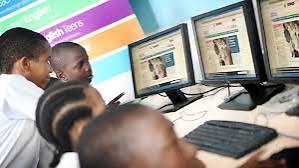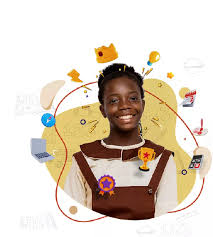The Nigeria Learning Passport, a digital learning platform launched by the United Nations Children’s Fund (UNICEF), has achieved a significant milestone by reaching one million subscribers. This achievement is being hailed as a breakthrough in providing educational access to children across Nigeria.

The Nigeria Learning Passport (NLP) was developed through a collaborative effort between UNICEF, the Federal and State Ministries of Education, and several key partners including Microsoft, Airtel, IHS Towers, Sony, Botnar Foundation, and the Global Partnership for Education (GPE). It offers over 15,000 curriculum-aligned educational resources, ranging from interactive lessons to digital textbooks and self-paced learning modules, catering to students from primary to secondary education levels, as well as teachers and parents.
Ms. Cristian Munduate, the UNICEF Nigeria Representative, expressed her delight at reaching this milestone, emphasizing that it is a testament to the collective commitment to providing quality education to every child in Nigeria, regardless of their location or circumstances. The Nigeria Learning Passport has become a vital tool in bridging the educational gap and creating opportunities for children to learn and thrive, particularly in remote and underserved communities.
The platform has proven instrumental in addressing the educational disruptions caused by the COVID-19 pandemic, as well as natural hazards and attacks on schools. Its user-friendly interface has made it accessible to learners of all ages. To further enhance inclusivity, a soon-to-be-launched offline capability will enable learners with limited internet connectivity to access the platform.
Key features of the Nigeria Learning Passport include a comprehensive curriculum that covers core subjects like Mathematics, Science, English, and Social Studies, available in local languages such as English, Hausa, Igbo, and Yoruba. The platform also engages learners through interactive videos, quizzes, and activities, all provided free of charge. Additionally, it offers data-free usage on an Airtel SIM Card and offline access, allowing students to download content and study without an internet connection. Teachers are also provided with resources to support effective teaching.
UNICEF expressed gratitude to its partners for their invaluable contributions to the success of the Nigeria Learning Passport. Airtel was commended for providing data services, IHS Towers for supporting data and connectivity, Microsoft for the platform’s infrastructure, and Sony and Botnar for funding its development and expansion. The Global Partnership for Education (GPE) was also acknowledged for its funding support.
UNICEF Nigeria reaffirmed its commitment to working closely with the Federal and State Ministries of Education, as well as other partners, to expand the reach of the Nigerian Learning Passport and enhance its content to meet the evolving needs of learners. This milestone represents a significant step towards achieving Sustainable Development Goal 4, which aims to ensure inclusive and equitable quality education for all.
UNICEF remains steadfast in its dedication to creating a brighter future for every child through education and innovation. The Nigeria Learning Passport stands as a beacon of hope, enabling children to continue their education and thrive despite challenging circumstances.




